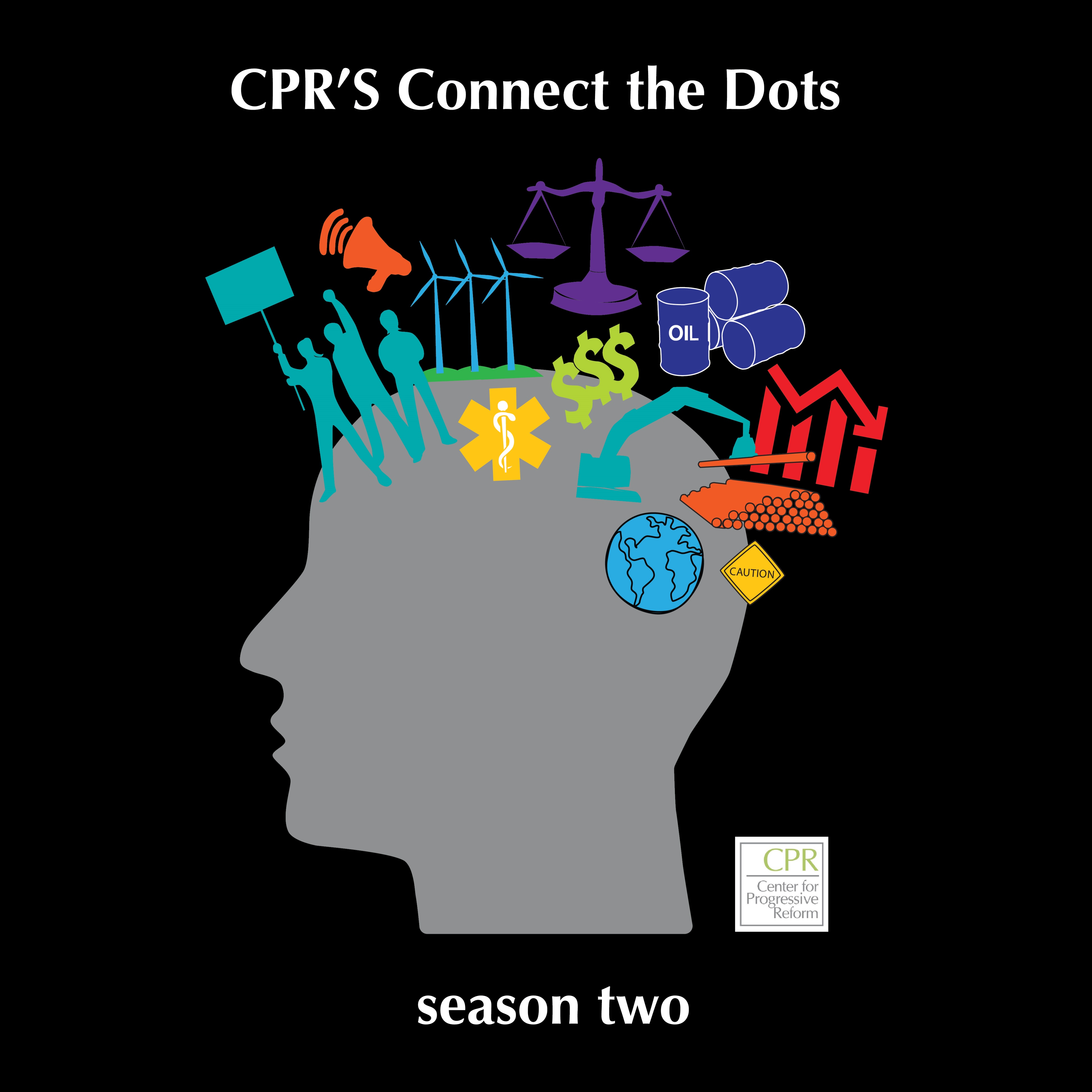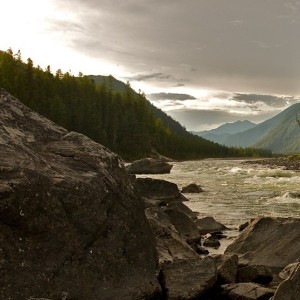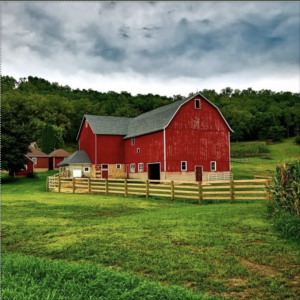
CPR's "Connect the Dots" with Rob Verchick launches engaging, accessible discussions with top policy experts, helping listeners "connect the dots" between real issues in their lives and new developments in climate change, environmental protection, worker and consumer safety, and social equality.
Episodes

Monday Jul 08, 2019
Season 2, Episode 4: Public Lands and Energy Policy
Monday Jul 08, 2019
Monday Jul 08, 2019
Center for Progressive Reform Member Scholar and University of Minnesota law professor Alexandra Klass talks with host Rob Verchick to connect the dots among public lands, energy resources, and climate change. They discuss how land use makes powering our societies possible and the role of the federal government in developing renewable energy resources.

Thursday Jun 06, 2019
Season 2, Episode 3: Working Toward a Just Energy Transition
Thursday Jun 06, 2019
Thursday Jun 06, 2019
Sharan Burrow of the International Trade Union Confederation discusses the importance of community involvement in policymaking, the need for a just transition away from a reliance on fossil fuels, the role of corporate and federal transparency in encouraging the confidence of workers and unions, and the feasibility of the Green New Deal.

Monday May 06, 2019
Season 2, Episode 2: Building Resilient Cities
Monday May 06, 2019
Monday May 06, 2019
Shalini Vajjhala of re:focus partners talks about the meaning of resilience, considers the impacts of environmental disaster on city infrastructure, and explores how communities can take proactive approaches to achieving long-term change.

Friday Sep 07, 2018
Episode 4: Keeping Workers Safe in the Era of Climate Change
Friday Sep 07, 2018
Friday Sep 07, 2018
CPR's Sid Shapiro and Katie Tracy discuss the challenges climate change poses for workers, now and in the future.

Friday Sep 07, 2018
Episode 1: Climate Change, Food Production, and the 2018 Farm Bill
Friday Sep 07, 2018
Friday Sep 07, 2018
Rob Verchick talks with CPR Member Scholar Laurie Ristino of Vermont Law School about the connections between climate change, food security, and policymaking tools like the Farm Bill that could be better used to promote sustainable agricultural practices.
